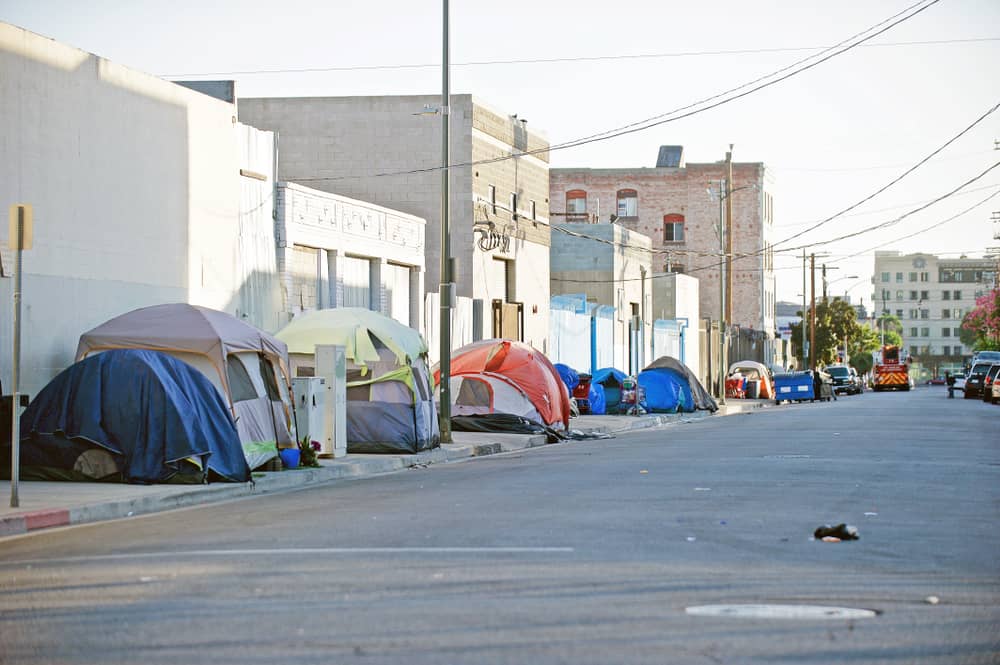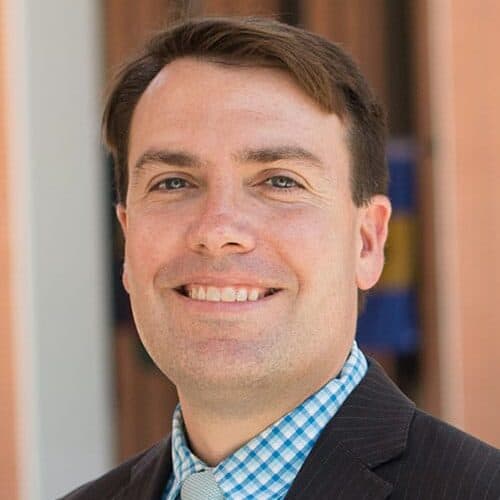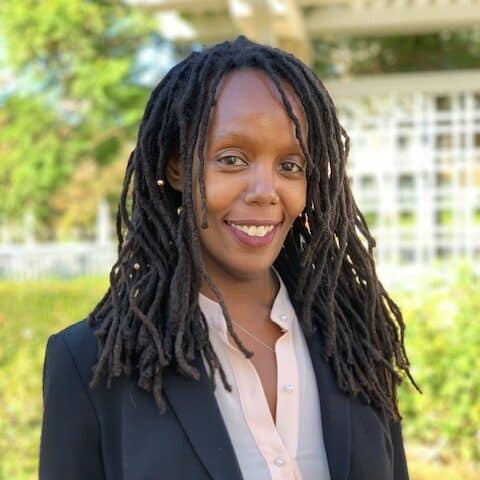Answering the call: Homelessness researchers get real-time data from mobile phone surveys

Takeaways:
- A team of researchers from USC and UCLA sent survey questions to mobile phones owned by people experiencing homelessness.
- Respondents reported significantly worse health conditions compared to the general population.
- 90% were interested in some kind of permanent or temporary housing, but just 2% said they’d be interested in group shelters.
Few laws from Los Angeles City Hall spark as much debate as those dealing with homelessness. Look no further than the city’s controversial ordinance banning camping in certain public places, which became a hot-button issue ahead of the municipal election. Yet missing from many policy discussions are the perspectives of those most affected: people experiencing homelessness.
A team of researchers from USC and UCLA are trying to fix that. They’re conducting a novel, ongoing survey of L.A.’s unhoused population, sending questions directly to mobile phones owned by people experiencing homelessness. The goal is to fill an information hole about the well-being, needs or desires of the unhoused community. Those insights could better inform policy decisions in the future, researchers say
The initial results, published last month by the USC Sol Price School of Public Policy’s Homelessness Policy Research Institute (HPRI), not only shed light on the health and housing preferences of L.A.’s unhoused population, but served as a sort of proof of concept. Offering $10 electronic gift cards, researchers collected data from hundreds of people who received questionnaires via text or email.

“The researchers were able to provide new information that just simply hadn’t been provided, but also help us learn that it is possible to collect data in a less costly way than trying to go out to the streets and interview people,” said Gary Painter, director of HPRI and professor at the USC Price School.
One of the key early findings of the study – co-authored by USC Suzanne Dworak-Peck School Professor Benjamin Henwood – is the poorer health of people experiencing homelessness. When compared to the general population, survey respondents reported a five-times higher level of food insecurity, three-times higher rate of general poor health and twice the rate of anxiety and depression.
The survey also revealed striking disparities between sheltered and unsheltered people, who were more likely to report worse health indicators. Study co-author Randall Kuhn, Professor at the UCLA Fielding School of Public Health, recently published a review paper highlighting the need for more research on the health of the unsheltered. In the future, researchers plan to explore whether additional months of unsheltered homelessness lead to further health deterioration.
“We know that there’s early mortality in this unhoused population generally, but there hasn’t been a focus on the health of the unsheltered population,” Henwood said. “Especially on the West Coast, given the large proportion of people who live on a regular basis unsheltered, there isn’t a whole lot of research.”
The findings challenge the myth that people choose to be homeless. Nearly all respondents (90%) were interested in some kind of permanent or temporary housing. What they’re not interested in is group shelters. Just 2% said they’d consider those congregate settings.

When asked about perceived barriers to taking shelter or housing, respondents cited lack of privacy (58%), safety concerns (54%) and negative interactions with staff (35%), among other issues.
That question about shelter staff resonated with one man camping in Culver City, who responded to the survey and asked not to be named in this story. He recalled a “verbally abusive” security guard at one shelter. At another, he said a landlord’s representative once entered his living space, ostensibly to change the curtains, only to throw out his belongings. He had to pick his possessions out of a trash can.
The Culver City man said another concern with shelters is sharing space with people with serious mental illnesses or other special needs.
“There’s this sense that as long as you get people under a roof, that’s all that matters,” he said. “It doesn’t matter the quality of their experience under the roof. Just get them under a roof, and they can figure it out themselves.”
Researchers collected initial survey responses from 411 people, of which 298 completed a subsequent survey a month later. The survey, officially called the Periodic Assessment of Trajectories of Housing, Homelessness, and Health Study (PATHS), aims to gather data more frequently than the typically annual homelessness assessments conducted in person.
Previous research from Henwood suggested that 94% of people experiencing homelessness owned a cell phone. The high rate of cell phone ownership is surprising, Henwood said, but he noted there are several relatively inexpensive options for people and many qualify for free devices through government programs. For people experiencing homelessness, the most difficult part may be not owning a cell phone but keeping it charged, he added.

“People that experience homelessness can often go between being sheltered and unsheltered. Folks are moving,” said Saba Mwine, the managing director of HPRI. “I think the cell phone is a really good way to capture a moving population.”
Launched in 2018, HPRI facilitates collaborative research focused on homelessness in Los Angeles. The research center now numbers more than 100 researchers, policymakers, service providers and experts with lived experience of homelessness across the region.
HPRI recently created a research agenda identifying priorities for homelessness research, such as racial equity and family homelessness. It will soon announce research grant awards based on that agenda, Painter said.
As for the cell phone survey, researchers plan to measure the effects of camping enforcement ordinances across Los Angeles County. The initial survey found little knowledge about anti-camping laws, which restrict where people can sleep and store property. Respondents, however, expressed high levels of concern about the ordinances.
“It increases that anxiety and instability that they feel,” Henwood said.
The study was funded by The Conrad N. Hilton Foundation.